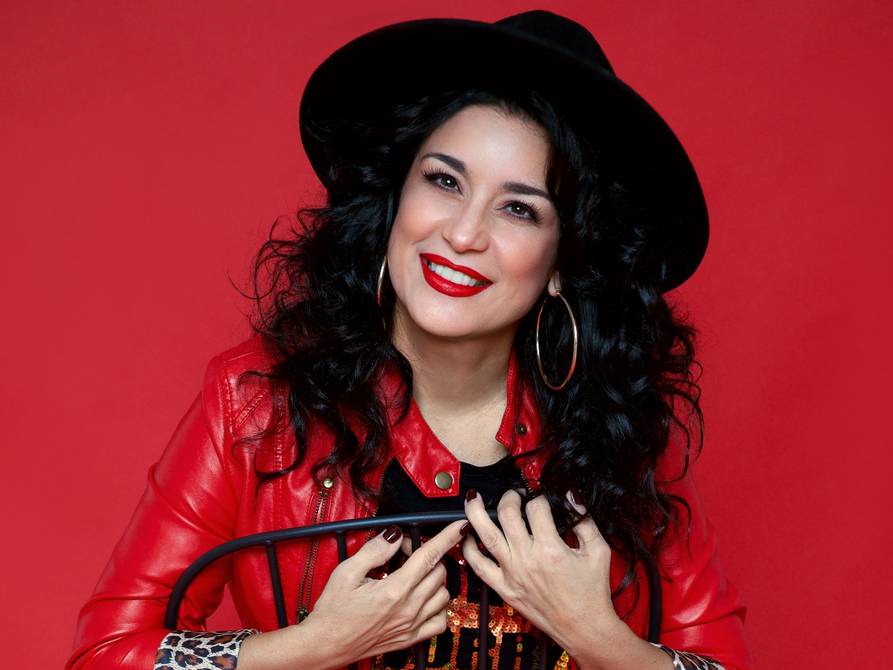Karina (conceived November 19, 1968, as Cynthia Karina Moreno Elías) is a Peruvian-conceived Venezuelan Latin popular music vocalist, lyricist, and entertainer. Her most memorable significant appearance was in the play El Taller Del Orfebre, in which she sang the melody “Zapatos De Tacón Alto.” She turned out to be commonly known in Latin America with her presentation collection Amor a Millón, explicitly with the hit tunes “Se Como Duele” and “A Quién.”
How did Karina achieve Stardom?

Love a Millón was the title of Karina’s most memorable collection. It was delivered by the Venezuelan vocalist and maker Rudy La Scala, and crested high on the main ten radio rundown. She followed it with Sin Mascara in 1987, which affirmed her status as a serious vocalist in Venezuela, yet in Mexico, the country that ended up being her platform as a music star.
That very year, she was designated in six classes of the Ronda Music Awards in Venezuela for her past collection, winning Best Female Breakthrough, Best Soap Opera Song (“Sé Como Duele”), Best Videoclip (“A Quién”), Best-Selling Album of the Year (“Amor a Millón”); likewise, Rudy La Scala (essayist and writer of “Sé Como Duele”), won the Best Composer of the Year grant. In 1988 Karina played the main part in the effective telenovela Alba Marina, broadcast by Venevisión, with Xavier Serbiá, Johnny Lozada, and Rene Farrait, then, at that point, individuals from Proyecto M and previous individuals from the Puerto Rican band Menudo, and with Venezuelan stars Elluz Peraza and Daniel Alvarado.
That very year she additionally won two Ronda Music Awards, one for Best Young Female Singer, and one more for Best Videoclip (“La Noche es Mágica”, created by the previous Mecano part Nacho Cano). In 1989, she recorded her third collection, Desde mi Sueño, which showed her creative development; she made her presentation as a writer with “Lamento de La Jungla” and “Soni.
The melodies “Desde Mi Sueño”, “No PuedoVivir Sin Amor”, “Enel Amor” and “No Sé” became hits. In 1990, Karina left her music vocation to seek after different desires, despite the fact that she partook in the Fiddler on the Roof melodic, coordinated by Michel Hausmann, during the 1990s.
Do you want to know more about Karina’s personal life?

On June 20, 1998, Karina wedded Brazilian Jewish businessperson Marcello Azevedo in a strict function broadcast by Venevisión. Their girl Yasha Marcella showed up in January 1999, followed on July 9, 2005, by her sister, Hannah Marcella. In 2016, Karina reported that Xander is a trans kid and that she intends to help him however much she can.
What are some of the other achievements of Karina?

Years after her enormous achievement depicting the great young lady with the comforting grin, she got back in the game on June 13, 2002, announcing to the paper ÚltimasNoticias that she missed singing and acting. She likewise functioned as her significant other’s delegate; however, she had no past experience.
In July 2004, she introduced her show, “Intimamente Karina”, in which she performed acoustic forms of her hits, and that October she recorded the collection Siempre Karina, which she expected to restore her to all the achievements she had encountered during the 1980s.
The collection was presented steadily in bars and clubs and authoritatively sent off in 2005. It was delivered by her better half Azevedo, maker of other Latin American artists like Chayanne and Paulina Rubio. Siempre contained new forms of her hits “Se Como Duele,” “Salvame,” and “A Quien,” in addition to seven new melodies, including “Sin Ti,” which was extremely famous in Latin America. She as of late sent off another single, “Borrón y Cuenta Nueva.”
How did Karina make a comeback?

Her re-visitation of the stage was on April 30, 2005, at the Lia Bermudez Arts Centre in Maracaibo, where she sang for more than an hour and a half. After nine months she got back to Mexico, where she partook as one of the adjudicators educators in the Televisa unscripted TV drama Cantando Por un Sueño. In 2010 she delivered “De Pie”, with all-new melodies created by Marcello Azevedo.
